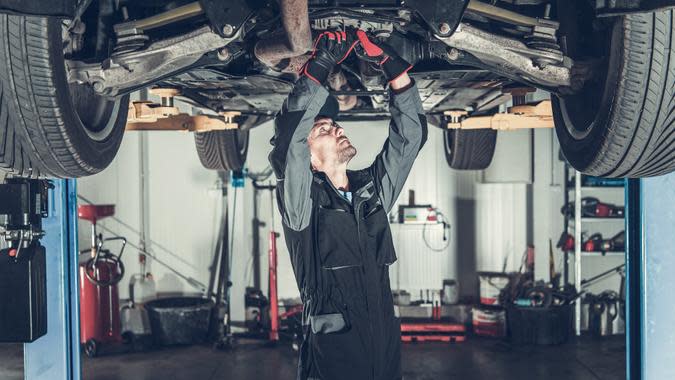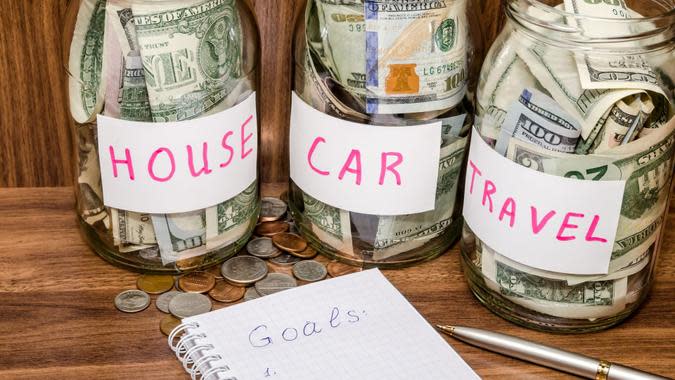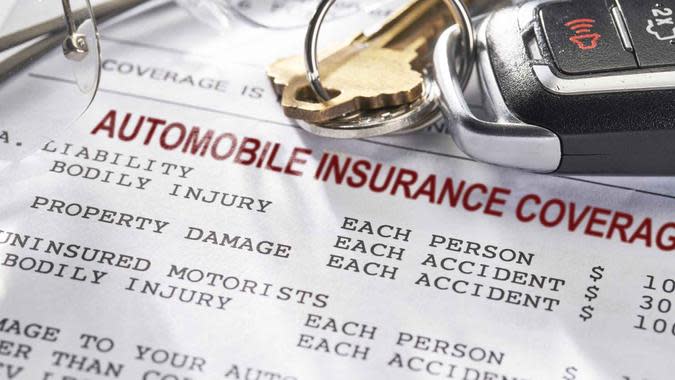8 Key Signs You Need To Downgrade Your Car To Save Money

Owning a car can be expensive. Not only might you have a monthly car payment, but you’re probably also dealing with insurance premiums, rising gas prices and regular maintenance.
Check Out: These 10 Used Cars Will Last Longer Than an Average New Vehicle
Try This: How To Get $340 Per Year in Cash Back on Gas and Other Things You Already Buy
According to AAA, the average person spends just over $12,000 a year — a little more than $1,000 a month — on their car. This is assuming a five-year ownership period and an average of 15,000 miles driven per year.
If you’re looking for ways to cut expenses, it might be time to reassess your car budget. Depending on your situation, downgrading could be a smart money move and make other areas of your life that much easier.
Here are the key signs that it’s time to switch to a different, more cost-effective car.

You’re Under Constant Budget Strain
Unless you’ve paid for your car outright, you probably have an auto loan. The average monthly payment for a new car is $738, while the average used car payment is $532, according to Experian.
Even if your monthly payment is lower, you could still be experiencing a strain on your finances. If that’s the case, it’s probably time to get a cheaper vehicle — provided the switch makes sense with your overall situation.
“There are a couple of ways you could have a car that’s too expensive for you. The first and probably most obvious is if you have a big car payment to meet while struggling to pay your bills,” said Todd Stearn, founder and CEO of The Money Manual.
If trading in your current vehicle won’t save you money, then refinancing your current auto loan might.
“If your credit score has improved since you purchased the car, you may be able to refinance at a lower interest rate and drop your payment that way,” said Stearn.
This will let you keep your current car while cutting down on your overall expenses.
Be Aware: 6 Cars With Bad Reviews To Avoid
Explore More: 7 Best Luxury Cars Worth Every Penny

The Car’s Resale Value Is High
“I recommend starting by assessing the car’s resale value and comparing it to the remaining loan balance,” said David Blain, CFA, chief executive officer at BlueSky Wealth Advisors. “If you are in a position where selling the vehicle and settling the loan leaves you with a surplus, consider investing that surplus into a more cost-effective car.”
If you instead realize that you owe more than the car’s worth, refinancing could be a sound strategy. It’ll lower your monthly payments until selling or trading in your vehicle makes more sense.
Find Out: 5 Best Japanese Cars for Retirees on a Budget

You’re Spending Too Much on Maintenance
When you have a vehicle, you’ll generally need to spend some money on repairs, maintenance and general upkeep. But if you find yourself taking frequent trips to the mechanic or spending hundreds or thousands of dollars on repairs, it’s probably a sign that a change is in order.
“It’s a great idea to get as much value as you can out of your purchases. But when you reach a point where maintenance and repairs are becoming costly and your vehicle is becoming unreliable, it’s probably time to find a good value on a newer used car,” said Stearn.

You’ve Put Other Goals On Hold
“One clear sign that a car is out of [your] budget is when the vehicle-related expenses prevent you from reaching your financial goals, such as saving for retirement or building an emergency fund,” said Blain.
There are times in life when it might make sense to hold off on other, long-term financial goals. But if you’ve been struggling to save, invest or work toward other goals because of your car, that’s a bigger problem that needs to be addressed.

You Don’t Drive Much
If you don’t drive enough to justify an expensive car payment, you might want to downgrade. You can save money that way, while still having a vehicle for when you do need it.
Evaluate your actual transportation needs versus wants. Are you paying a lot every month just to own a vehicle you don’t often use? If so, see if trading it in or selling it for something cheaper — or even public transportation — makes more sense.
Discover More: 8 Classic Cars for Retirees To Buy for Hobby and Investment

Insurance Is Eating Into Your Budget
Car insurance is required in nearly every state. Every state also has its minimum coverage requirements, though you might still want to opt for full coverage or even gap coverage for that extra peace of mind.
If you own a more expensive vehicle, or if you have a history of accidents or other issues, you might be paying more for car insurance. The more you pay, the less you have for other expenses or future financial goals.
You could potentially get a lower rate by downgrading to a cheaper car. But if you don’t want to do that, you still have options.
“For those looking to free up extra cash without downgrading, I suggest scrutinizing your insurance policies and maintenance habits,” said Blain. “Opting for a higher deductible or shopping around for more competitive insurance rates can yield savings.”

You’re Ready for a Change
Sometimes, all you need is to know that you’re ready for a change. In the case of your car, that could mean trading it in for a cheaper model — one that can also save you money.
“You could either do a dealer trade-in or sell the car and purchase a more affordable one,” said Stearn. “If you’re still making payments, the lender will have a lien on the car. In that case, you’ll need to contact the lender to tell them your plans and find out how you’ll need to go about it, including paperwork and anything the buyer would need to do.”

You’re on the Verge of Repossession
Cars get repossessed when you’re behind on payments — usually at least three months behind. If you’re worried about this happening, you need to make a change.
“Whatever you do, don’t let your car get repossessed,” said Stearn. “If it gets to the point where you’re missing payments and that could happen, call the lender and arrange a voluntary surrender. This is a last resort, because it will hurt your credit, but it won’t be as bad as a repo.”
More From GOBankingRates
Dave Ramsey: Why You Shouldn't Buy a New Car/Take Out an Auto Loan This Year
5 Reasons You Should Consider an Annuity For Your Retirement Savings
This article originally appeared on GOBankingRates.com: 8 Key Signs You Need To Downgrade Your Car To Save Money
